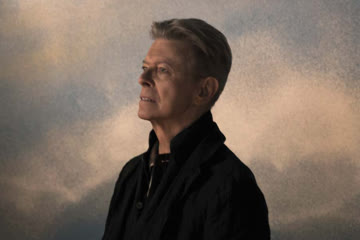Film Carew: The Wolf Of Wall Street, The Great Beauty
“All we give two shits about is getting rich.” Welcome to The Wolf Of Wall Street, everyone.
THE WOLF OF WALL STREET
![]()
“All we give two shits about is getting rich,” implores Matthew McConaughey, the Spirit Guide who arrives with a macho-warrior war-cry at the start of The Wolf Of Wall Street, lays out the Tao Of The Stock Broker - “cocaine and hookers, my friend” - then exits stage-left. McConaughey is in the film for about 10 minutes, but he sets its tenor: his crypto-philosophical, financial-shaman figure laying the deplorable ideological groundwork for all that's to come: three highly-ironic, over-the-top hours of wild vice, gluttony, misogyny, debauchery, and more swearing than Film Carew's Oscars Preview. Martin Scorsese's 23rd feature finds the filmmaking legend bordering on a parody of himself, but it suits the text: his directorial maximalism - the gymnastic camera, throbbing colour-grading, and blaring soundtrack cues - suiting a picture that's out to turn abhorrent obscenity into high-art commentary. The Wolf Of Wall Street is a gleeful, grotesque portrait of the Empire in decline, a Roman orgy in which America's national obsession with obscene excess is blown out to ridiculous extremes. It's like the witless brother to Scorsese's crimes sagas; the moral codes of the mafia ditched for a swinging party of sheer immorality.
It stars the director's recurring collaborator, Leonardo DiCaprio, as a “money-crazed” swindler in charge of a brokerage boiler-room built on shilling worthless micro-stocks to mom-and-pop investors. “Another fuckin' idiot!” he sneers, victoriously, when he slams down the phone, fresh off fleecing another schmuck of his hard-earned cash. He's the one-percenter gleefully parting fools from their money, a salesman abusing the very same lure that lead him to toiling in the dark arts of stock-market voodoo: greed. Burning through his ill-gotten lucre on cocaine and hookers - and midgets, chimpanzees, and yachts - like a human grassfire, DiCaprio stokes a frenzied cult-of-personality, the hyper-masculine Leader of a “greed fest with equal parts cocaine, testosterone, and body fluids.” His firm is so fake it isn't even on Wall Street, but in the Long Island boondocks: a symbol of the financial industry's grand Fugazi; New York the manifest film-set that play-acts as the centre-of-the-world, the music-video cladding on the American Empire's glittering Potemkin village. The firm is fake, the secretary's tits are fake, Jonah Hill's teeth are fake: they're living the dream, screw the realism. “It was obscene in the normal world, but who the fuck wanted to live there?” DiCaprio cackles.
Don't miss a beat with our FREE daily newsletter

Cheers to being a greedy motherfucker!
What's most shocking about The Wolf Of Wall Street is that, even if it doesn't inhabit the normal world, it dwells firmly in the real world. It's based on the memoir of piece-of-human-shit Jordan Belfort, and though certain fictional licenses have been taken with fact, Scorsese and screenwriter Terrence Winter haven't needed to pump up the excess; their depiction of the killing-floor's twin addictions - drugs and greed - rings with painful truth. The film is clearly a condemnation of both the man and his actions, yet, the slick patina of Scorsese's visuals and the movie-star charisma of DiCaprio's performance will undoubtedly mean that some audience-members will see it as a glorification; will view this cautionary-tale of a convicted criminal who punches his wife in the face not with revulsion, but aspiration. The notion that artists need be responsible for the responses of their audience is an absurd application of backwards logic, the stuff of stock-moralising from op-ed trolls. But if The Wolf Of Wall Street does become some how-to manual for the next generation of reprehensible financial-sector cunts, out to rape the world for every possible cent they can, then the film itself is not the problem, but merely a minor symptom of a greater condition. “Stratton-Oakmont is America!” DiCaprio hollers, barking his firm's name - and the film's disquieting theme - loud into the drunken night; the line lingering, loud and clear, as tellingly-symbolic as a $29-trillion bailout.

A great beauty, in a floaty.
THE GREAT BEAUTY
![]()
I don't know if the release of the new film for Paolo Sorrentino in the same week as the new Scorsese was planned, but it's nicely coincidental. The Italian filmmaker owes a sure spiritual debt to Scorsese, and his latest film, The Great Beauty, is its own work of sumptuous visuals and deplorable decadence strung out over a lengthy sprawl. Returning to Italy after the All-American roadtrip of his oddball English-language debut, This Must Be The Place, Sorrentino makes a grand, opulent portrait of Rome. With scenes set against the Coliseum, down the Tiber, and amongst endless ruins, Roma serves as a decaying stage; the inescapable remnants of an ancient history that still instils the city with its Eternal arrogance. And, here upon the cradle of civilisation, the rich-and-connected inner-circle of Berlusconi-era Italy throw a succession of endless summer parties, dancing up a storm whilst the country sinks ever further into disrepair.

It wouldn't hurt those Wolf Of Wall Street boys to embrace a bit of religion...
As sumptuous as the visuals are, this, too, is no glorification of excess: there's a Botox Mystic herding through endless high-society payers like a deli-counter cattle-call; a funeral as a piece of pure social-event theatre; a main character (played by Sorrentino's own muse, Toni Servillo) who's an unavowed misanthropist, sneering at the desperation that surrounds him. “The best people in Rome are the tourists,” Servillo sighs; and Sorrentino gives us a view of Rome that is both tourist-brochure familiar (architecture, fountains, nuns, tailors, pizza), and like a glimpse back-stage, at the bustling power-players beavering away behind the bright façade. Rome isn't just a Stage, but a Sound Stage, and cinema-nerds can flip out with delight at Sorrentino's studied homage to Italian cinema history, to the knowing winks to those men of yore - Fellini, Antonioni, Rossellini - who've rolled film on these same mean streets. It's a curious gesture, given how The Great Beauty is, as text, a critique of an Italian inclination to lean on history, to dwell in a constant culture-of-the-past. Nostalgia is, Servillo proclaims, “for those who have no faith in the future”, and this film finds Sorrentino, in the Holy City itself, confessing to his own faithlessness.
But even if Scorsese is a spiritual grandfather on Sorrentino - whose own gymnastic camera has always cast him as part videoclip visionary, but bona fide auteur - there's an indirect air, an ambling dreaminess, that means you could never convince the younger for the elder. The film floats, like a boat down the Tiber, propelled by only the barest of plots; with the kind of dramatic developments usually situated at a story's core - deaths, old-age laments, career crises, revelatory reveals of the memory that's haunted a protagonist for a lifetime - relegated to vague reveries in the margins. Sorrentino is, as ever, attracted to strange faces, odd bodies, and absurd juxtapositions; the glory of his glowing portrait of Rome-at play its absolute fondness for humanity at its most bizarre.







